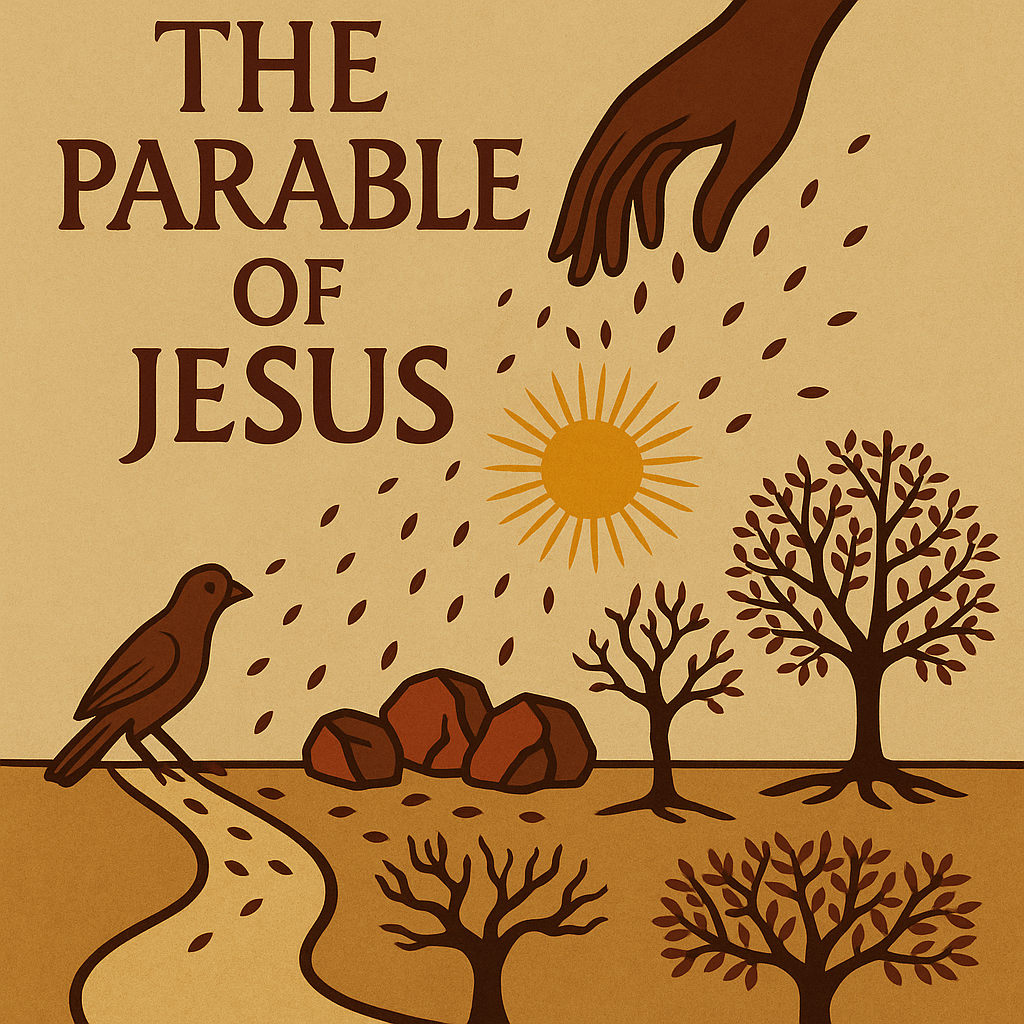Parables of Jesus By Theme
Jesus did not teach abstract philosophy or distant theology—He taught through parables: simple, powerful stories drawn from everyday life, yet filled with eternal meaning. His parables are divine mirrors. They reveal the heart of God and reflect the state of our own hearts. Through them, Jesus invites us into the mystery of the Kingdom of God.
This Parables by Theme Map is a practical and spiritual resource to help you organize, reflect on, and teach the parables of Christ. It is built on the scholarly insights of Metropolitan Hilarion Alfeyev and the commentary of the Early Church Fathers. Each parable is grouped by its central theme—such as mercy, judgment, or discipleship—and linked to suggested tags that can guide you in categorizing sermons, lessons, and reflections.
Whether you’re preparing a sermon, leading a Bible study, or seeking personal growth, this map will help you walk with Christ through the stories He told—and the truths He lived.
Parables of Jesus – Thematic Map
1. Mercy & Forgiveness
These reveal the compassionate heart of God and call us to show the same to others.
- The Prodigal Son (Luke 15:11–32)
- The Good Samaritan (Luke 10:25–37)
- The Unmerciful Servant (Matthew 18:23–35)
- The Lost Sheep (Matthew 18:12–14; Luke 15:3–7)
- The Lost Coin (Luke 15:8–10)
- The Two Debtors (Luke 7:41–43)
Suggested Tags: Mercy, Forgiveness, Compassion, Repentance
2. The Kingdom of God
These describe what the Kingdom is like—its value, growth, and divine origin.
- The Sower (Matthew 13:1–9; Mark 4:1–9; Luke 8:4–8)
- The Mustard Seed (Matthew 13:31–32; Mark 4:30–32; Luke 13:18–19)
- The Leaven (Matthew 13:33; Luke 13:20–21)
- The Pearl of Great Price (Matthew 13:45–46)
- The Treasure in a Field (Matthew 13:44)
- The Net (Matthew 13:47–50)
- The Growing Seed (Mark 4:26–29)
Suggested Tags: Kingdom of God, Spiritual Growth, Faith, Hidden Glory
3. Judgment & Accountability
These speak of the end of times, final separation, and divine justice.
- The Ten Virgins (Matthew 25:1–13)
- The Talents (Matthew 25:14–30)
- The Minas/Pounds (Luke 19:11–27)
- The Wedding Feast (Matthew 22:1–14)
- The Wise and Foolish Builders (Matthew 7:24–27; Luke 6:47–49)
- The Wicked Tenants (Matthew 21:33–46; Mark 12:1–12; Luke 20:9–18)
- The Barren Fig Tree (Luke 13:6–9)
- The Final Judgment in the Sheep and Goats (Matthew 25:31–46)
Suggested Tags: Judgment, Watchfulness, End Times, Responsibility
4. Response to the Word
These focus on how people hear, receive, and respond to God’s Word.
- The Sower (Matthew 13:1–9)
- The Two Sons (Matthew 21:28–32)
- The Lamp under a Bushel (Mark 4:21–25; Luke 8:16–18)
- The Wise Steward (Matthew 24:45–51; Luke 12:42–46)
Suggested Tags: Discipleship, Spiritual Hearing, Obedience, Growth
5. Stewardship & Use of Gifts
These teach about using what God has given with faith and responsibility.
- The Talents (Matthew 25:14–30)
- The Minas (Luke 19:11–27)
- The Unjust Steward (Luke 16:1–13)
- The Laborers in the Vineyard (Matthew 20:1–16)
Suggested Tags: Stewardship, Faithfulness, Service, Reward
6. Hypocrisy, Pride, and Self-Righteousness
These expose the heart of legalism and contrast it with humility.
- The Pharisee and the Publican (Luke 18:9–14)
- The Rich Fool (Luke 12:13–21)
- The Friend at Midnight (Luke 11:5–8)
- The Unprofitable Servants (Luke 17:7–10)
Suggested Tags: Humility, Pride, Legalism, Heart
7. Human Relationships & Love of Neighbor
These deal with how we treat others and the call to love.
- The Good Samaritan (Luke 10:25–37)
- The Two Debtors (Luke 7:41–43)
- The Rich Man and Lazarus (Luke 16:19–31)
Suggested Tags: Love, Justice, Compassion, Community

